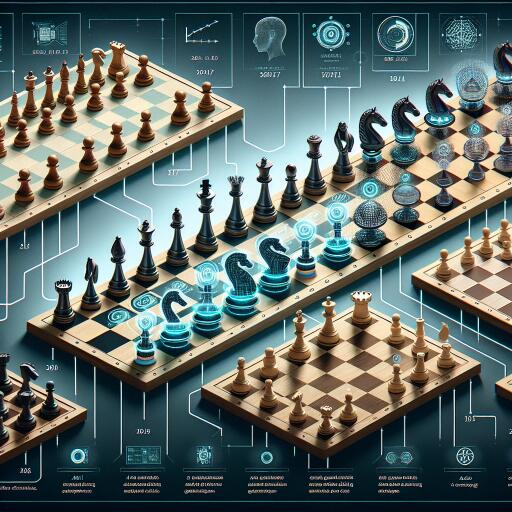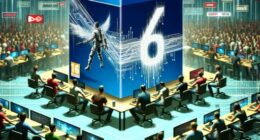“`html
To Understand The Future Of AI, Look At What Happened To Chess
In a historic moment during the 90s, Garry Kasparov, the reigning chess champion at the time, faced off against IBM’s Deep Blue supercomputer. This event sparked a mixture of fear and intrigue within the chess community. Many wondered if a machine’s victory over the top human player could spell the end for the ancient game, fearing a decline in interest and sponsorship as a result of the perceived superiority of AI.
Contrary to those early fears, chess not only survived the challenge of AI but thrived, experiencing unprecedented growth and popularity. This resurgence was fueled, in part, by the ways in which chess adapted to and embraced the potentials of computer technology. The story of chess in the age of AI serves as a compelling preamble to understanding the broader implications of artificial intelligence in our world today.
The relationship between AI and chess did not merely continue the status quo but revolutionized the game. The advent of AI-driven analysis and online play democratized learning and competition, enabling players from diverse backgrounds to rise to prominence. The integration of computers into the study and practice of chess led to the development of novel strategies and tactics, pushing the game’s evolution forward at an accelerated pace.
Similarly, the game of Go witnessed its own AI-infused transformation. The arrival of Google DeepMind’s AlphaGo, capable of defeating top human players and introducing innovative strategies, marked a pivotal shift. These digital competitors did not merely mimic human play but explored new dimensions of the game, inspiring human players to adopt new approaches and rethink their strategies.
Garry Kasparov, once a skeptic, has become an advocate for AI’s potential to enhance and democratize strategy games. His journey reflects a broader realization: AI’s impact extends beyond competition, offering tools for learning and innovation. This perspective underscores the importance of harnessing AI’s capabilities to foster growth and creativity, rather than viewing it as a mere adversary.
The realm of strategy games exemplifies how AI can serve as a catalyst for human advancement, pushing us to explore new strategies and to rethink traditional approaches. This dynamic is not limited to games but extends to various sectors, including business negotiations. AI’s capacity to analyze vast data sets and optimize outcomes introduces new possibilities for collaboration and problem-solving, aiming for outcomes where all parties gain more, a concept known as Pareto efficiency.
A recent IMF study indicates that AI will impact up to 40% of jobs globally, with the potential effect reaching 60% in advanced economies. However, this technological wave doesn’t simply herald an era of displacement but transformation. AI will likely change how we work, complementing human capabilities and creating new opportunities. The transition calls for an adaptive mindset, recognizing that the future will belong to those who can leverage AI as a powerful tool for advancement.
The history of AI in games like chess and Go offers valuable lessons for our collective future. It demonstrates the potential of AI to not only challenge but also enrich human endeavors. As we stand on the brink of a new era of AI integration, our focus should be on harnessing its capabilities to unlock new possibilities, driving innovation and enhancing our collective capabilities. The future of AI, much like its impact on chess, holds the promise of transformation, democratization, and unprecedented growth across various aspects of our lives.
“`









